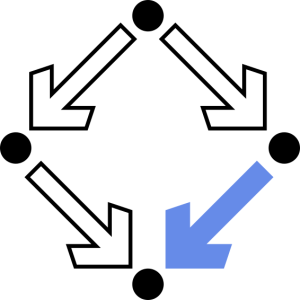- Lecturer: Stephan Dreiseitl
- Lecturer: Tudor Jebelean
- Lecturer: Manuel Kauers
- Lecturer: Temur Kutsia
- Lecturer: Wolfgang Schreiner
- Lecturer: Wolfgang Windsteiger
The first part of the lecture introduces to basic combinatorial
sequences like binomial coefficients, partition numbers, or Stirling
numbers.
The main part of the lecture is devoted to the concept of group
actions. This fundamental concept, connecting algebra with
combinatorics, can be viewed as the basis of Polya's counting theory.
Typical applications, for instance, concern different colorings of the
cube, or determining the total number of molecular graphs of a
certain type (e.g., alcohols).
- Lecturer: Ralf Hemmecke
- Lecturer: Peter Paule
The lecture will be in ENGLISH. (Not in German, as announced elsewhere!)
We discuss basic notions and methods to solve problems originating in analysis (like the problem of integration or of proving special function identities) with tools from computer algebra. The whole lecture has introductory character.
- Lecturer: Ralf Hemmecke
- Lecturer: Peter Paule
- Lecturer: Wolfgang Schreiner
- Lecturer: Wolfgang Schreiner
- Lecturer: Wolfgang Schreiner
- Lecturer: Ralf Hemmecke
- Lecturer: Peter Paule
- Lecturer: Franz Lichtenberger
- Lecturer: Wolfgang Schreiner
- Lecturer: Ralf Hemmecke
- Lecturer: Peter Paule
